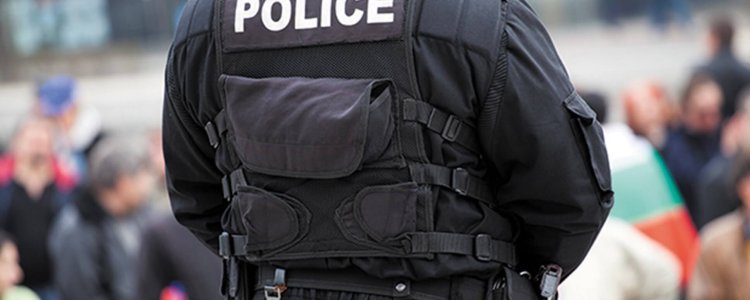From masslawyersweekly.com By: Pat Murphy October 22, 2020
Lawyers who defend police accused of misconduct are alert to the potential impact that the death of George Floyd and other alleged cases of officers using excessive force against minorities could have on their own clients’ cases.
 “You are always concerned about the public climate and how it affects any case,” says Leonard H. Kesten, a Boston litigator who for more than three decades has represented police officers and municipalities sued over civil rights violations.
“You are always concerned about the public climate and how it affects any case,” says Leonard H. Kesten, a Boston litigator who for more than three decades has represented police officers and municipalities sued over civil rights violations.
But Kesten also has great faith in the jury system. In that regard, he likens the current public climate to the furor that arose when Los Angeles police were caught on camera beating Rodney King following a high-speed chase in 1991.
“I certainly didn’t like what I saw happening in Los Angeles, but we found that jurors still seemed to treat each case on the merits,” Kesten says. “One hopes that continues.”
Longtime Boston civil rights lawyer Douglas I. Louison likewise remembers the conventional wisdom that the Rodney King case fundamentally was going to change the handling of excessive force litigation forever.

“As we learned in the following 20 years, that wasn’t the case,” Louison says. “It didn’t change our ability to defend excessive force cases.”
According to Louison, what did occur was the defense argument to juries shifted from focusing on the police as an institution in society that was beyond reproach to the argument that, while there may be bad apples, this officer couldn’t do what he’s being accused of.
“That’s the lesson we learned from King, and that lesson will continue in the current era,” he says.

Andrew J. Gambaccini, counsel to the Massachusetts Police Association Legal Defense Fund, represents individual police officers both in civil actions and internal affairs investigations. Gambaccini says attorneys in his line of work usually do a good job of weeding out jurors with a bias against police.
However, the Worcester lawyer adds that once jury trials resume after being sidelined due to the pandemic, he’ll be on the lookout for prospective jurors with hidden agendas.
“I worry that we are not going to have people who are forthcoming during the jury empanelment process in order to get on the jury,” Gambaccini says.
One immediate impact he’s seeing is that municipal officials are quick to dole out discipline when a citizen brings a complaint against an officer.
“It’s pretty clear that a lot of that is being driven by public pressure to ‘go after’ police officers in one way or another,” Gambaccini says. “It’s a lot easier [politically] for a town official to discipline an officer and let an arbitrator or civil service commissioner tell them a year or two down the road they were wrong.”
Kesten is skeptical about much-hyped legislative efforts to limit qualified immunity, which generally protects police officers from civil liability in the absence of a showing that they violated clearly established rights. Over the summer, Kesten voiced his concerns to state legislators when the Senate and House considered competing police reform measures that included proposals to limit qualified immunity under the Massachusetts Civil Rights Act.
“There was a rush to pass legislation this summer,” Kesten says. “I’m glad it has slowed down and is receiving more scrutiny.”
The public impetus for limiting qualified immunity is based on misconceptions, Louison says.
“Qualified immunity is not a shield to excuse bad conduct and allow bad actors to continue as police officers,” he says. “But it is a dynamic and very important defense for police and public officials who act reasonably.”
Kesten points out that any action with respect to qualified immunity on the state level would be “largely symbolic” since most excessive force claims are brought under the federal Civil Rights Act’s §1983.
But there’s also action under foot on the federal side.
In June, H.R. 7085 was introduced in the U.S. House of Representatives. The measure seeks to eliminate qualified immunity as a defense to §1983 claims based on a defendant’s acting in good faith or a reasonable belief that the conduct was lawful. The legislation would further remove as a defense the assertion that a right was not clearly established at the time of the alleged misconduct. Similar measures are languishing in the U.S. Senate.
Kesten says he feels for the vast majority of police officers who are being “tarred” by the misdeeds of a few, and that he’s hearing anecdotally about an increase in retirements in the departments he deals with as a result of the public backlash against law enforcement.
“There are people who just don’t want to deal with it,” Kesten says. “Imagine going out there and having people hate you just because you’re wearing the uniform. The job is tough enough as it is.”

